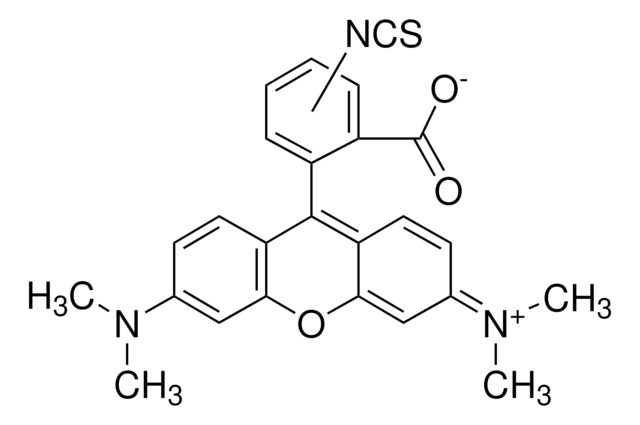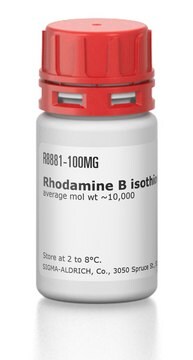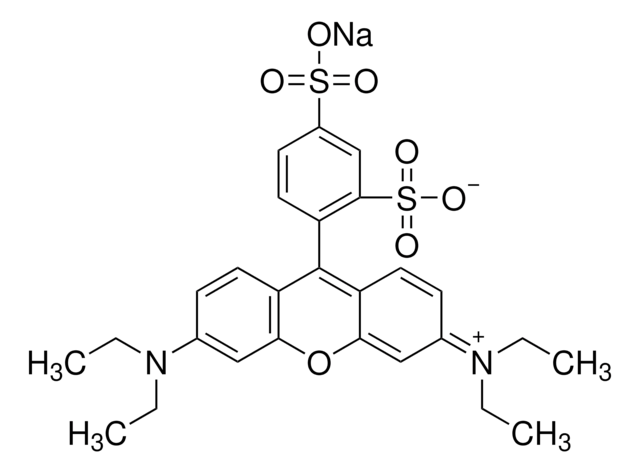T3163
Tetramethylrhodamine isothiocyanate Isomer R
powder
Sinónimos:
6-TRITC, Tetramethylrhodamine-6-isothiocyanate
About This Item
Productos recomendados
descripción
labeling efficiency with bovine albumin >= 50%
Nivel de calidad
Formulario
powder
composición
Dye content, ≥80%
solubilidad
1 M NH4OH: 10 mg/mL (Faint Red to Very Dark Red to Very Dark Purple solution)
aplicaciones
diagnostic assay manufacturing
hematology
histology
temp. de almacenamiento
2-8°C
cadena SMILES
CN(C)c1ccc2c(OC3=C\C(C=CC3=C2c4cc(ccc4C([O-])=O)N=C=S)=[N+](/C)C)c1
InChI
1S/C25H21N3O3S/c1-27(2)16-6-9-19-22(12-16)31-23-13-17(28(3)4)7-10-20(23)24(19)21-11-15(26-14-32)5-8-18(21)25(29)30/h5-13H,1-4H3
Clave InChI
OBYNJKLOYWCXEP-UHFFFAOYSA-N
Descripción general
Aplicación
- TRITC is used to label a wide variety of biomolecules, including immunoglobulins, lectins, nucleic acids, polynucleotides, and polysaccharides for affinity, immuno-, and in situ hybridization, fluorescent probes, and flow cytometry.
- Lectins are TRITC-Iabeled reagents for the affinity staining of sections and cell monolayers to distinguish the sialomucins of salivary glands.
- TRITC-antibodies are used to identify pathogenic amoebae.
- TRITC-oligonucleotides are used in the in-situ hybridization staining of soil microorganisms.
- TRITC-Iabeled reagents have also been used as fluorescent probes of live cells.
- Flow cytometry of TRlTC-Iabeled slime mold cells has been used to study their aggregation behavior.
Elija entre una de las versiones más recientes:
¿Ya tiene este producto?
Encuentre la documentación para los productos que ha comprado recientemente en la Biblioteca de documentos.
Los clientes también vieron
Import Using Xenopus Egg Extracts
Nuestro equipo de científicos tiene experiencia en todas las áreas de investigación: Ciencias de la vida, Ciencia de los materiales, Síntesis química, Cromatografía, Analítica y muchas otras.
Póngase en contacto con el Servicio técnico





